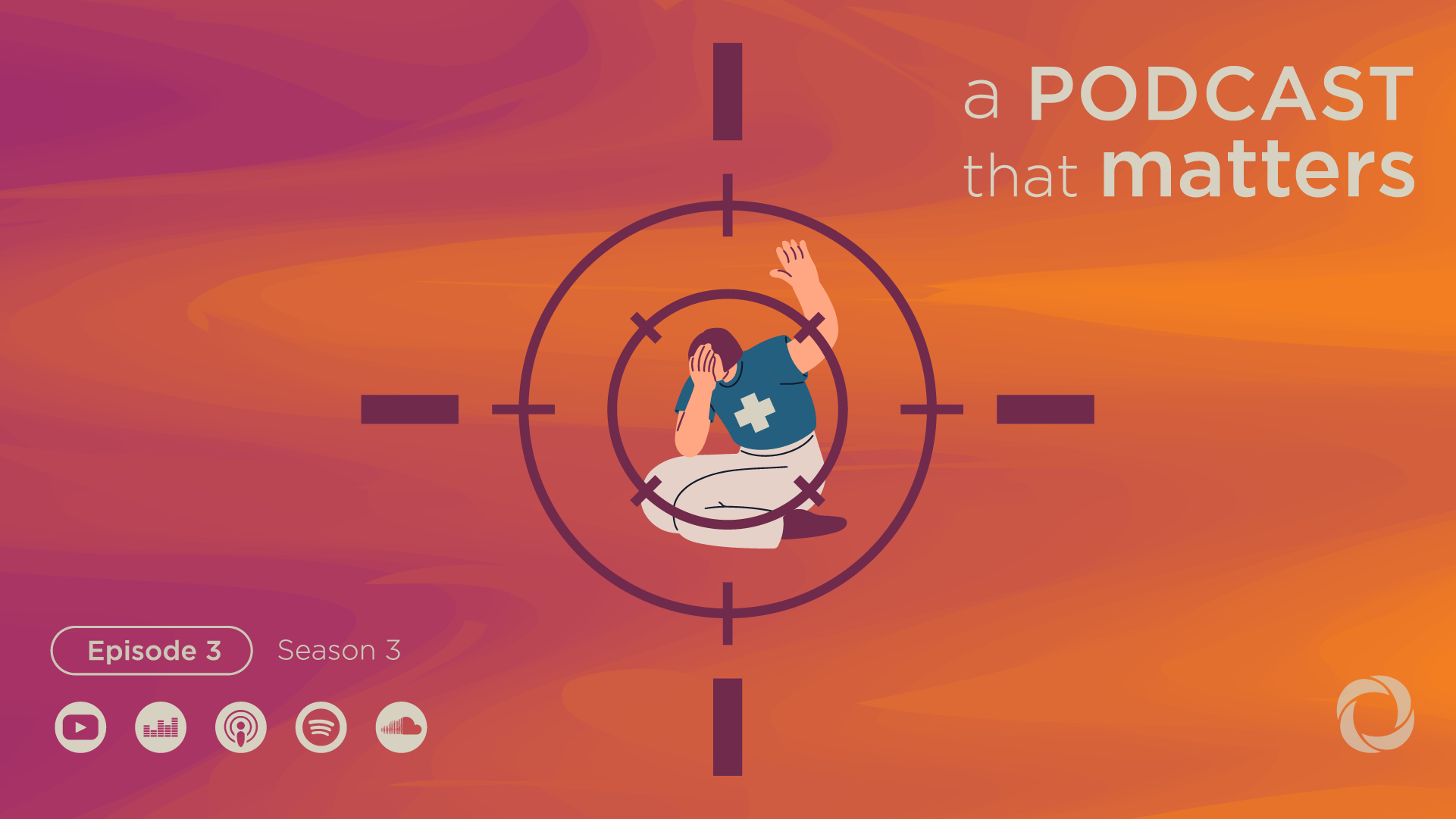World Humanitarian Day 2025, observed globally on August 19, stands as a solemn tribute to the courage and sacrifice of aid workers delivering hope amid crises. In this episode of the DevelopmentAid Dialogues podcast, host Hisham Allam speaks with Sajeda Shawa, head of the United Nations Office for the Coordination of Humanitarian Affairs (OCHA) in the United Arab Emirates. With over 18 years of leadership in humanitarian affairs across the Middle East and beyond, Sajeda brings a rare combination of deep regional insight and global advocacy experience — notably serving as Special Advisor to the UN Assistant Secretary-General and Regional Humanitarian Coordinator for Syria.
Download the transcript of this episode.
Last year alone, more than 380 humanitarian workers were killed, 98% of whom were national staff closely embedded with affected communities. Gaza remains the deadliest place for aid workers, with over 500 killed since October 2023. These numbers reflect not statistics, but human lives with stories, families, and profound loss.
The scale of need continues to expand against a backdrop of more than 130 active armed conflicts globally. Sajeda highlighted that 300 million people are currently in need of humanitarian assistance, driven foremost by conflict and forced displacement at historic highs. Women, children, and marginalized groups disproportionately bear the brunt of crises exacerbated by rising food insecurity, sexual and gender-based violence, and the devastating impact of war on children. Climate change and natural disasters add layers of complexity and urgency to response needs worldwide.
With attacks on aid workers reaching record levels, OCHA has intensified advocacy for protection and accountability. Sajeda described how the humanitarian community urges Member States and all parties to conflict to respect their obligations and end the culture of impunity regarding violence against civilians and responders. The independent voices of national staff, who endure disproportionate risks, anchor this call for global solidarity.
Deep cuts to humanitarian funding — notably from major donors like USAID, Germany, and the UK — have forced what Sajeda calls a “humanitarian reset.” With only 18% of assessed needs currently funded, aid actors must make difficult decisions, prioritizing life-saving interventions and protection for the 114 million most vulnerable people. This hyper-prioritization demands agility and coordination across agencies and governments to maximize impact amid scarce resources.
Sajeda detailed how OCHA UAE serves as a critical liaison, working closely with the UAE government, regional partners, and international actors to coordinate aid flow, timely information sharing, and advocacy. The UAE’s strategic logistics hub ensures rapid deployment of humanitarian assistance to crisis zones like Gaza and Yemen, often within hours. Beyond operations, the office invests heavily in humanitarian diplomacy, engagement with youth, academic institutions, and women’s empowerment to build inclusive, forward-looking humanitarian leadership in the Gulf region.
As climate change becomes the largest driver of humanitarian need globally, OCHA intensifies its focus on resilience and adaptation. With support from the UAE government, the first-ever humanitarian pavilion at COP28 provided a platform for affected communities across Africa, Asia, Latin America, and the Middle East to speak directly to decision-makers. Programs now blend emergency aid with climate-smart solutions such as drought-resistant seeds and improved water infrastructure, grounding response in the lived realities of vulnerable populations.
Highlighting localization as central to effective humanitarian response, Sajeda stressed women’s vital role. Over 50% of affected populations are women and children, yet women historically have been underrepresented among decision-makers and responders. OCHA UAE works closely with local partners to boost women’s leadership and meaningful participation at all stages—from planning to diplomacy. Youth engagement is also a priority, aiming to nurture the next generation of humanitarian leaders across the region.
Reflecting on her unique role as the first Arab woman to lead an OCHA office in the UAE, Sajeda sees her work as a mission to connect local knowledge with global humanitarian expertise.
In a time of rising needs and dwindling resources, she emphasized that solidarity, collaboration, and courageous leadership are key to sustaining humanitarian action and saving lives.
Listen to the full episode on DevelopmentAid Dialogues. Stay informed. Stay engaged.

